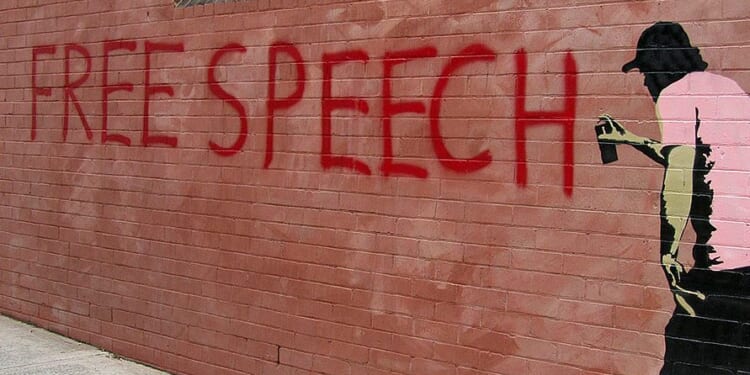Oliver Dean is a political commentator with Young Voices UK. He studies History and Politics at the London School of Economics and Political Science (LSE) where he is the President of the LSE Hayek Society.
When the government passed the Online Safety Act, ministers promised it was a shield against harmful content. It was depicted as a law to protect children, tackle online abuse, and rein in the internet’s worst corners. But Ofcom’s recent spat with American tech companies proves it is nothing more than a politicised weapon designed to encroach on our most important freedoms. Indeed, Ofcom is no longer acting as an independent institution but as an arm of this government – and we should all be worried about where this could lead.
Recent lawsuits in the United States reveal just how far Ofcom is prepared to go. American websites such as 4chan and Kiwi Farms have accused the regulator of threatening them with fines and legal action if they fail to comply with British standards of “online safety.” Indeed, in a country where the First Amendment and free speech reign supreme, Ofcom have taken matters into its own hands to decide what is acceptable and what is not.
It is easy to turn a blind eye to such companies. 4chan and Kiwi Farms are not typically considered welcoming social media platforms. Marred with controversy and notoriety, it becomes easy to justify Ofcom’s actions.
But that is precisely why this matters. Free speech protections are not designed for the comfortable or the popular. They exist to defend the expression that governments find inconvenient, offensive, or even dangerous. If regulators can muscle fringe websites into submission, what is to say that mainstream voices won’t be next. It is a slippery slope that should frighten anyone who values free speech.
Yet, the deeper issue here is jurisdictional overreach. The Online Safety Act was sold to the British public as a domestic measure, aimed at protecting the British public and the British public only. Yet Ofcom is using it to reach far beyond our borders, telling companies thousands of miles away how to run their services. This is not about safeguarding British children. It is about extending state control into spaces the state has no right to regulate. And it risks setting a precedent other governments will follow.
If what Ofcom does becomes normalised, the end result is a world wherein countries begin exporting their means of censorship abroad. Where one does not need to comply only with the rules and regulations of their own country, but any other country where their voice could be heard. If we permit Ofcom to wield such invasive regulatory powers, that is exactly the world we will find ourselves in.
Faced with unclear rules and the threat of enormous fines, platforms will have no choice but to err on the side of caution. They will be forced to take down more speech than necessary, thus silencing lawful expression.
This will not just be a crackdown on sites that ordinary people like you and I will never visit. It will slowly seep into mainstream platforms. News platforms, trendy social media sites, even academic forums could be at risk if Ofcom continues to wield such enormous powers.
No one is disputing the intentions of the government in passing this law and granting Ofcom this power. But the cure cannot be worse than the disease. Democracies are defined by their tolerance of speech. Particularly, speech that offends. When governments assume the power to decide what may be said not just within their own borders, but across borders as we have seen with Ofcom, the line between a free society and an authoritarian one becomes blurred.
The Online Safety Act was supposed to be a shield. Yet, in Ofcom’s hands, it is becoming a sword. If we allow this regulator to continue unchecked, Britain will not take aim at its own freedoms, it will export censorship abroad and invite others to do the same.
Free societies do not flourish by silencing voices. They flourish by answering them, debating them, and tolerating them. The government must remember this before it is too late. Because once regulators become tools of control the freedom we take for granted online will quickly slip away.








![Florida Officer Shot Twice in the Face During Service Call; Suspect Killed [WATCH]](https://www.right2024.com/wp-content/uploads/2025/12/Inmate-Escapes-Atlanta-Hospital-After-Suicide-Attempt-Steals-SUV-Handgun-350x250.jpg)


![Keith Ellison Caught Promising to Fight State Agencies for Somali Fraudsters [WATCH]](https://www.right2024.com/wp-content/uploads/2026/01/Keith-Ellison-Caught-Promising-to-Fight-State-Agencies-for-Somali-350x250.jpg)





